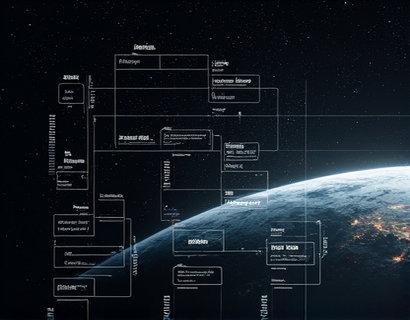AI-Powered Solutions for Enhanced Virtual Entity Care
The advent of virtual entities has opened new frontiers in digital management, requiring sophisticated tools to ensure their optimal performance and well-being. With the increasing complexity of digital creatures, traditional management methods are no longer sufficient. This article delves into a revolutionary AI solution designed to transform the way developers and caretakers manage virtual entities, leveraging advanced algorithms to enhance care and performance.
Understanding Virtual Entity Care
Virtual entities, often referred to as digital creatures or NPCs (non-playable characters), are integral to various digital ecosystems, from gaming platforms to virtual reality environments. Managing these entities involves monitoring their health, performance, and interactions within the digital space. Traditional care methods rely on predefined scripts and manual interventions, which can be time-consuming and inefficient. The introduction of AI-powered solutions addresses these limitations by providing dynamic, real-time care that adapts to the evolving needs of virtual entities.
AI Algorithms for Optimal Performance
At the core of this AI solution are advanced algorithms designed to optimize the performance of virtual entities. These algorithms continuously analyze data from various sensors and inputs, identifying patterns and anomalies that could affect the entity's performance. For instance, an AI system can monitor a virtual character's energy levels, adjusting its activities to prevent exhaustion. By predicting potential issues before they occur, the AI ensures that virtual entities operate at peak efficiency, reducing downtime and enhancing user experience.
Enhancing Well-Being Through AI
Well-being is a critical aspect of virtual entity care, often overlooked in traditional management approaches. AI-powered solutions go beyond performance optimization by focusing on the overall well-being of digital creatures. This includes managing stress levels, social interactions, and environmental factors. For example, an AI system can detect signs of stress in a virtual pet, such as increased agitation or reduced activity, and initiate calming routines like playing soothing music or adjusting the environment to a more relaxed setting. This holistic approach ensures that virtual entities not only perform well but also thrive in their digital habitats.
Real-Time Monitoring and Adaptive Care
One of the key advantages of AI-powered virtual entity care is real-time monitoring. AI systems can continuously track multiple parameters, from physical health to emotional states, providing a comprehensive overview of each entity's condition. This real-time data is processed through machine learning models that adapt care strategies on the fly. For instance, if a virtual entity is detected to be in a high-stress situation, the AI can automatically trigger interventions such as providing a safe space or engaging in calming activities. This adaptive care ensures that virtual entities receive immediate and appropriate responses to their needs, enhancing their overall well-being.
Predictive Maintenance and Proactive Care
Predictive maintenance is another significant benefit of AI in virtual entity care. By analyzing historical data and current trends, AI systems can predict potential issues before they become critical. For example, an AI might identify a pattern of increasing system lag in a virtual environment, indicating an impending hardware failure. Proactive measures can then be taken to prevent downtime, such as scheduling maintenance or upgrading resources. This proactive approach not only extends the lifespan of virtual entities but also ensures a seamless user experience.
Personalized Care Experiences
AI-powered solutions enable personalized care experiences tailored to the unique needs of each virtual entity. Machine learning algorithms can analyze individual behaviors and preferences, creating customized care plans that enhance engagement and satisfaction. For instance, a virtual pet might have specific dietary requirements or play preferences. An AI system can adjust feeding schedules, activity routines, and interaction styles to match these preferences, fostering a deeper connection between the user and the virtual entity. This personalization not only improves the entity's well-being but also enhances the overall user experience.
Integration with Existing Systems
Seamless integration with existing digital platforms is crucial for the successful implementation of AI-powered virtual entity care. The AI solution is designed to work alongside current systems, whether they are gaming engines, virtual reality environments, or other digital ecosystems. This integration ensures that care processes are cohesive and efficient, without disrupting the user's experience. Developers can easily incorporate AI capabilities into their existing workflows, leveraging the advanced algorithms to enhance their virtual entities' management.
Challenges and Considerations
While AI-powered virtual entity care offers numerous benefits, there are challenges and considerations to address. One major concern is data privacy and security. AI systems handle sensitive data, and ensuring this data is protected is paramount. Robust security measures, including encryption and access controls, must be implemented to safeguard user information. Additionally, the complexity of AI algorithms requires skilled professionals to develop and maintain these systems. Training and support for developers and caretakers are essential to ensure they can effectively utilize AI tools.
Future Prospects and Innovations
The future of AI in virtual entity care is promising, with ongoing research and development poised to bring even more advanced capabilities. One area of focus is the integration of emotional intelligence, enabling AI systems to understand and respond to the emotional states of virtual entities more effectively. This could involve recognizing subtle changes in behavior or physiological signals and responding with empathetic care. Another frontier is the use of augmented reality (AR) and mixed reality (MR) to create more immersive and interactive care environments, further enhancing the well-being of virtual entities.
Conclusion
AI-powered solutions represent a significant leap forward in virtual entity care, offering optimized performance and enhanced well-being for digital creatures. By leveraging advanced algorithms and real-time monitoring, these solutions address the complex needs of virtual entities, ensuring they operate at their best. As the digital landscape continues to evolve, AI will play an increasingly vital role in managing and caring for virtual entities, providing developers and caretakers with powerful tools to create richer, more engaging digital experiences.











































